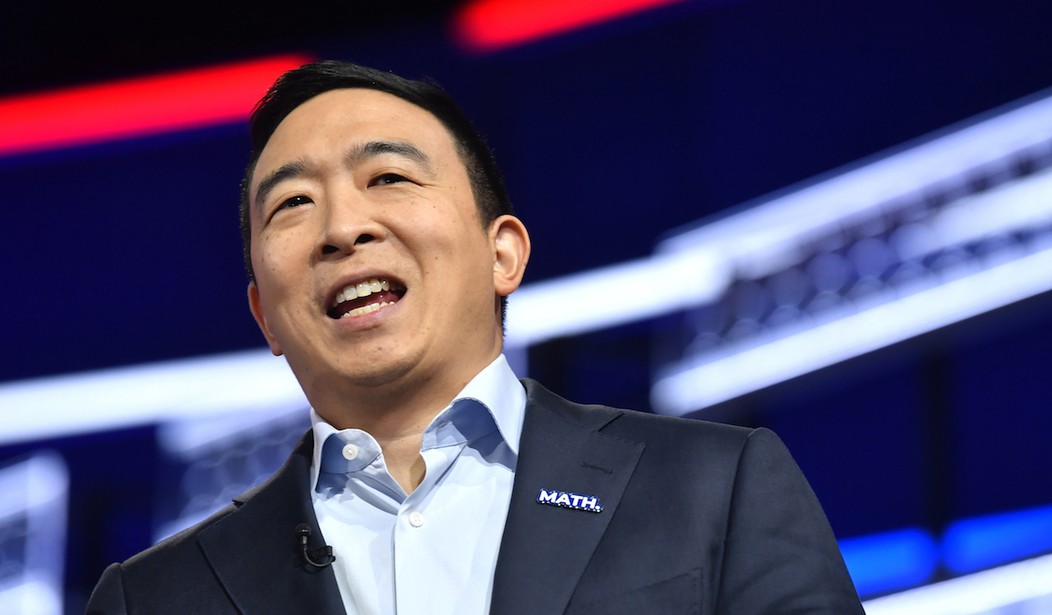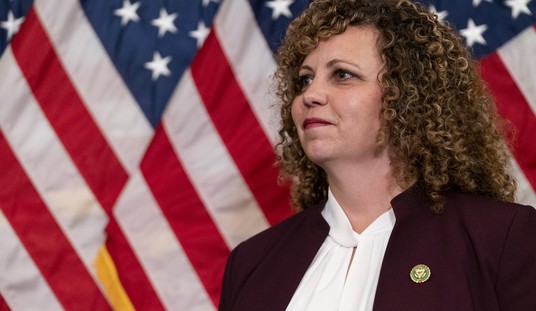Presidential hopeful Andrew Yang wants to give everyone free money. In addition to the moral hazard created by such a move, the program would dramatically raise taxes on poor and middle income households.
The former tech entrepreneur has been deemed “moderate” – at least compared to the rest of his party. One reason for this view is his repeated clashes with Senator Elizabeth Warren on her wealth tax, bringing up how other nations had already tried (and failed) to generate revenue that way.
“I think in theory it makes a lot of sense. But the problem with the wealth tax is in the details and the implementation,” Yang said in a Snapchat interview with Good Luck America.
But despite his strong stance against socialism, Yang’s own policies are equally radical.
Take his most famous proposal – Universal Basic Income. Calling it a ‘freedom dividend’, Yang has repeatedly cited it as a panacea for all of America’s problems.
His website is triumphant, proclaiming that this policy will “enable all Americans to pay their bills, educate themselves, start businesses, be more creative, stay healthy, relocate for work, spend time with their children, take care of loved ones, and have a real stake in the future.”
Full employment, education, healthcare, and family harmony can all (apparently) be achieved by giving each citizen $1,000 a month.
How does he plan to pay for it? By imposing a 10 percent Value-Added Tax.
Common in Europe, a Value-Added Tax taxes consumption by taxing every step of the production process. It is a levy on each step of the manufacturing and distribution process. If a farmer sells wheat to a baker for $40, and the baker sells the bread he makes for $100, the baker’s ‘added value’ is $60.
Recommended
Progressives love the VAT because it is a massive cash cow for the government. A VAT set at 5 percent would suck $3 trillion out of the economy over a decade. Yang’s version would take out $6 trillion.
Even worse, the universal nature of his proposal means that everyone gets a handout – not just those in need. This leaves an obvious question: what about the wealthy? Will Jeff Bezos and Bill Gates be given the same amount as everyone else? If we paid a freedom dividend to the top 10% of income earners – a group made up of people earning more than $118,000 – it would cost a staggering $327 billion over 10 years.
A VAT would crush small businesses all across the country and the increased prices will impact struggling families more than anyone else, which is why the Tax Policy Center has described it as a regressive tax. Yang’s website claims this won’t happen for two reasons: increased consumption and decreased costs associated with “free market innovation.”
First, the increased consumption can't grow the economy in this scenario. Consider this: if someone takes a slice of pizza, takes a bite, and then puts it back, do you have more or less pizza?
The bite in this case is two things: administrative costs created by all big government policies, and purchases of foreign goods which, in our age of globalization, is becoming more and more common.
Every dollar ‘gained’ by businesses due to increased consumption came from businesses in the first place. Their profits will surely go down once the bite is taken into consideration.
Second, “free market innovation” doesn’t just happen by magic. It is the result of research. Expensive research. The iPhone cost Apple almost $2billion in research and development.
So ironically, a VAT tax would decrease innovation, preventing prices from going down naturally.
Yang's policy also creates a moral hazard. If everyone receives $1,000 a month whether they work or not, why should they work? And why should people have their money stolen from them to pay for someone else?
Workers are entitled to the fruits of their own labor – not the labor of someone else. Ultimately, retraining our workers and reforming our education system are the best ways to get people out of poverty.
But that’s complicated. It’s hard to make a catchy sound bite out of job training programs. So instead, the nation will continue talking about giving everyone 'free' money. At least for now.
























Join the conversation as a VIP Member